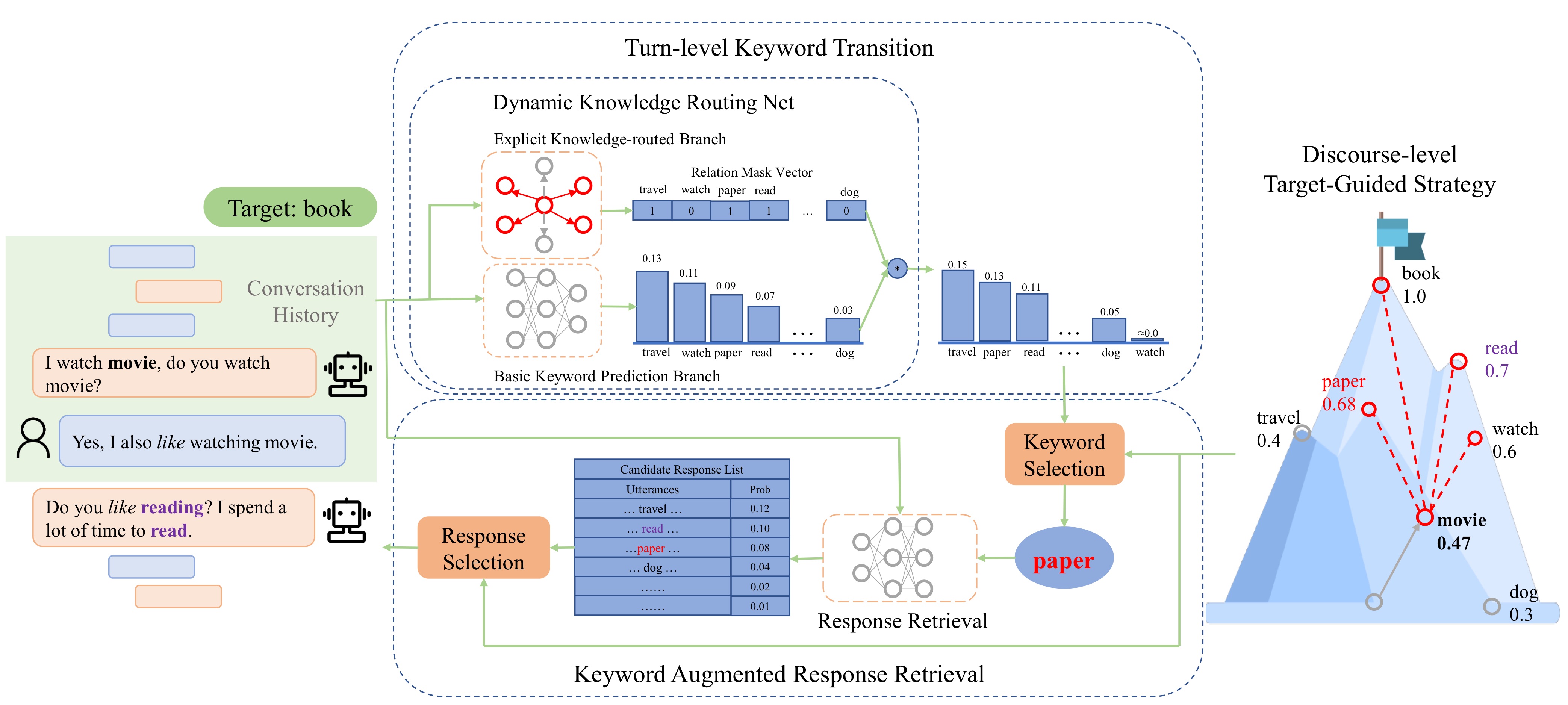Dynamic Knowledge Routing Network For Target-Guided Open-Domain Conversation
Target-guided open-domain conversation aims to proactively and naturally guide a dialogue agent or human to achieve specific goals, topics or keywords during open-ended conversations. Existing methods mainly rely on single-turn datadriven learning and simple target-guided strategy without considering semantic or factual knowledge relations among candidate topics/keywords. This results in poor transition smoothness and low success rate. In this work, we adopt a structured approach that controls the intended content of system responses by introducing coarse-grained keywords, attains smooth conversation transition through turn-level supervised learning and knowledge relations between candidate keywords, and drives an conversation towards an specified target with discourse-level guiding strategy. Specially, we propose a novel dynamic knowledge routing network (DKRN) which considers semantic knowledge relations among candidate keywords for accurate next topic prediction of next discourse. With the help of more accurate keyword prediction, our keyword-augmented response retrieval module can achieve better retrieval performance and more meaningful conversations. Besides, we also propose a novel dual discourse-level target-guided strategy to guide conversations to reach their goals smoothly with higher success rate. Furthermore, to push the research boundary of target-guided open-domain conversation to match real-world scenarios better, we introduce a new large-scale Chinese target-guided open-domain conversation dataset (more than 900K conversations) crawled from Sina Weibo. Quantitative and human evaluations show our method can produce meaningful and effective target-guided conversations, significantly improving over other state-of-the-art methods by more than 20% in success rate and more than 0.6 in average smoothness score.
PDF Abstract
